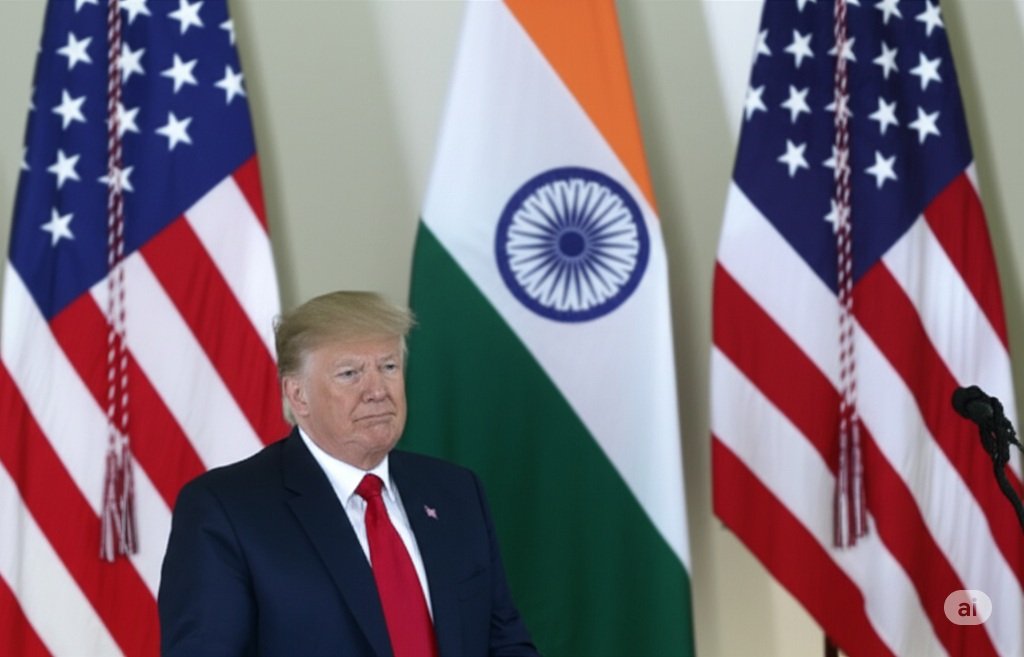Trump on US-Pakistan Relations and India-Pakistan Trade


President Donald Trump highlights past diplomatic efforts with Pakistan and notes ongoing trade discussions between India and Pakistan, underscoring the complex geopolitical landscape.
The global stage is a delicate tapestry of relationships, often fraught with tension and the potential for conflict. Recently, President Donald Trump offered insights into his administration’s interactions with Pakistan, specifically recalling a meeting with Pakistan’s Chief of Army Staff, General Asim Munir. Trump emphasized that two major nuclear powers had successfully avoided war during his tenure, a statement that implicitly acknowledges the sensitive dynamics in the South Asian region.
A Focus on Avoiding Conflict
While details of the meeting remain sparse, Trump’s emphasis on averting war between nuclear-armed nations carries significant weight. For decades, the relationship between India and Pakistan has been marked by periods of intense rivalry and occasional conflict. The fact that both nations possess nuclear capabilities adds a critical layer of complexity to any diplomatic engagement. Trump’s remarks suggest a focus on de-escalation and maintaining stability during his time in office.
Trade Winds Blowing?
Interestingly, alongside his reflections on Pakistan, Trump also mentioned ongoing trade discussions between India and Pakistan. While political relations have often been strained, economic ties can sometimes offer a pathway for dialogue and mutual benefit. Any progress in trade negotiations between the two neighbors would be a noteworthy development, potentially fostering greater interdependence and reducing tensions.
Implications for the United States
For Americans, understanding these dynamics is crucial. The stability of the South Asian region has broader implications for global security and trade. The U.S. has historically played a role in mediating tensions in the area, and the relationship between the U.S., India, and Pakistan remains an important aspect of American foreign policy.
- The avoidance of conflict between nuclear powers is always a paramount concern for global security.
- Trade relationships can be a powerful tool for building trust and fostering stability between nations.
- The United States has a vested interest in promoting peace and prosperity in South Asia.
Navigating a Complex Landscape
The interplay of diplomatic efforts, security concerns, and economic interests creates a complex landscape in South Asia. Trump’s recent comments serve as a reminder of the delicate balance required in navigating these relationships. As the world continues to evolve, understanding the nuances of these interactions will be essential for informed policymaking and ensuring global stability.
Recent Posts
Apple’s Big Plans for Early 2026: What to Expect
Get ready, tech enthusiasts! Apple is reportedly gearing up for a significant wave of product… Read More
Understanding Trump’s Latest Move Against Canada and Beyond
A Bold Stance on Trade Relations The global trade landscape is once again shifting as… Read More
Stop Believing These Common Weight Loss Myths
Tired of weight loss advice that just doesn't work? Debunking the most common myths about… Read More
Sweat Smarter, Not Harder: Your Beginner’s Guide to Home Workouts
Ready to get fit without leaving your house? This beginner-friendly guide covers everything you need… Read More
Did False Data Cost Columbia $9 Million? What the Lawsuit Means for Students
Columbia University settles a $9 million lawsuit over alleged false data in college rankings. Discover… Read More
US Stock Market Why Futures Dipped After Record Highs
US stock futures dip after record highs. Explore what's driving this pullback, from federal policy… Read More